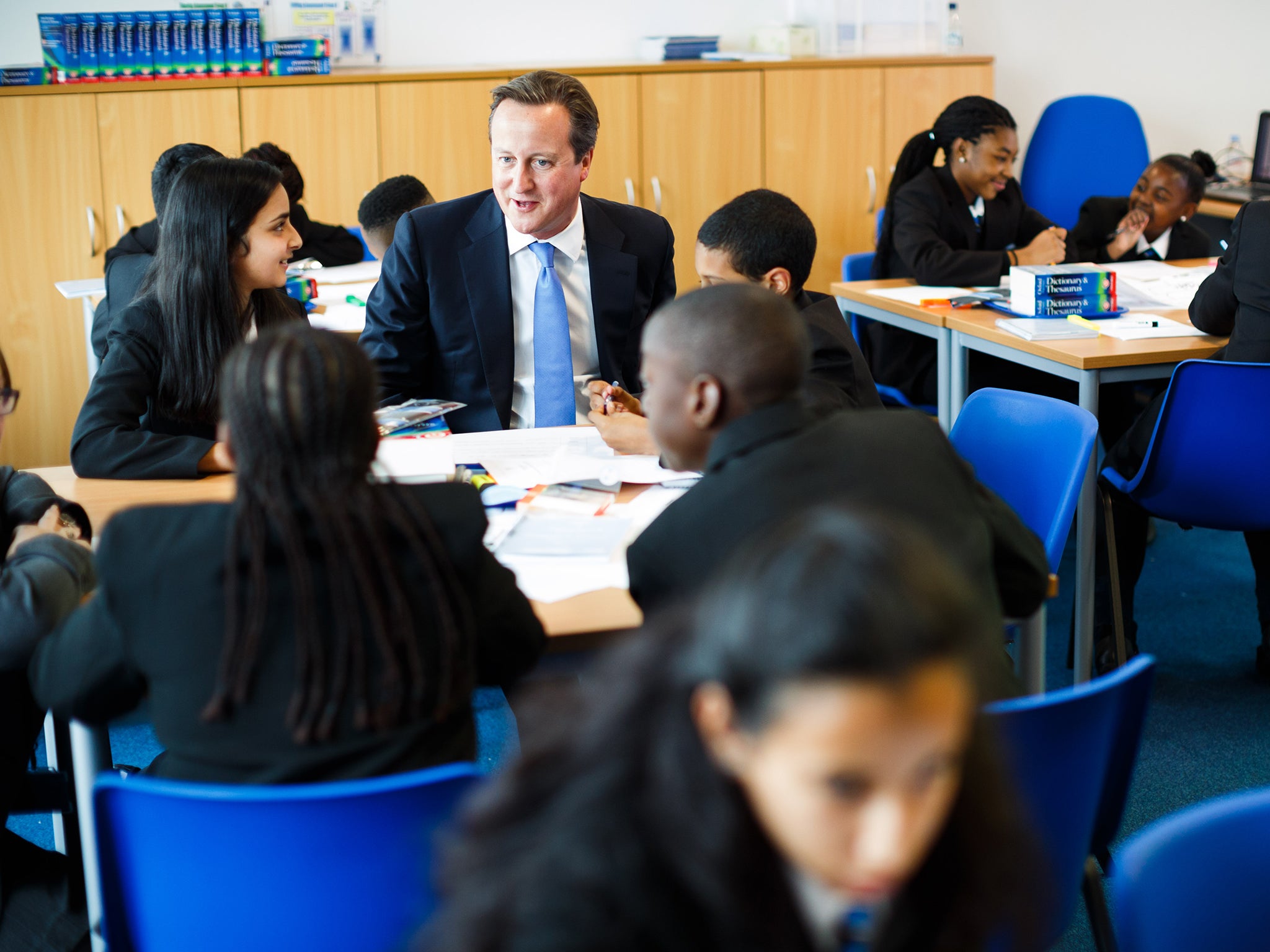State funding per pupil will drop under Tories, David Cameron admits
Prime Minister attacked for watering down ring-fencing promises

David Cameron has admitted that state funding per pupil would fall in real terms over the next five years under the Conservatives despite their pledge to protect the £48bn-a-year schools budget.
The Prime Minister was attacked by Labour and the Liberal Democrats, who claimed his promise to ring-fence school spending was much less generous than it appeared, and who pledged to spend more on education than the Tories.
The Independent’s latest poll of polls shows that Labour’s lead over the Tories has dropped from two points to a single point since the May election campaign began a month ago. Labour is on 33 per cent (up one point on last month), the Tories on 32 per cent (up two points), Ukip on 13 per cent (down two points), the Lib Dems on eight per cent (down two points), the Greens on eight per cent (up one point), and other parties on six per cent (no change).
If these figures were repeated at the election on a uniform swing, there would be a hung parliament in which Labour would have 319 seats, the Tories 276, the Lib Dems 22 and others 33. When the latest polls in Scotland are included to reflect the Scottish National Party’s advance, the figures would be Labour 293, Tories 263, SNP 54, Lib Dems 19 and others 21. The Lib Dems would not then have enough seats to form a coalition with Labour for an overall Commons majority, which could force Labour to seek a deal with the SNP.
John Curtice, professor of politics at Strathclyde University, who compiled the poll of polls, said a crucial question was whether the Tories could make further progress, as governments often do in the run-up to elections.
“This election campaign may well be more about what kind of hung parliament we acquire rather than who can win a majority,” he said.
Speaking in London, Mr Cameron said: “We are saying very clearly, when it comes to schools, that money that follows your child into the school won’t be cut. Because the number of children going to school is going up, this has an implication that means that in cash terms the schools budget is going to be rising.
"Now, I accept that that is a difficult decision for some schools because the amount of cash per child is not going up by inflation, the amount of cash is staying the same.”
Paul Johnson, director of the Institute for Fiscal Studies, said the move was "quite a watering down" of the Coalition’s ring-fenced protection for schools since 2010. He told BBC Radio 4: "What the Prime Minister seems to be saying, going forward, is not that schools will be protected as they have been but there will just be a cash protection, so real terms falls over the next parliament."
David Laws, the Lib Dem Schools Minister, said: “This is an unbelievably weak commitment from David Cameron. The Conservatives have failed even to protect the schools budget in real terms and it is clear that they will have to make deep cuts to early-years and 16-19 education. You simply can't improve education while starving schools, nurseries and colleges of the resources they need."
Tristram Hunt, the shadow Education Secretary, said: “The cat is out of the bag. Labour has always prioritised schools and would be able to do so again because we have a balanced approach to bringing down the deficit, unlike the Tories' risky plan not just to balance the books but to cut for year after year afterwards."
Subscribe to Independent Premium to bookmark this article
Want to bookmark your favourite articles and stories to read or reference later? Start your Independent Premium subscription today.

Join our commenting forum
Join thought-provoking conversations, follow other Independent readers and see their replies